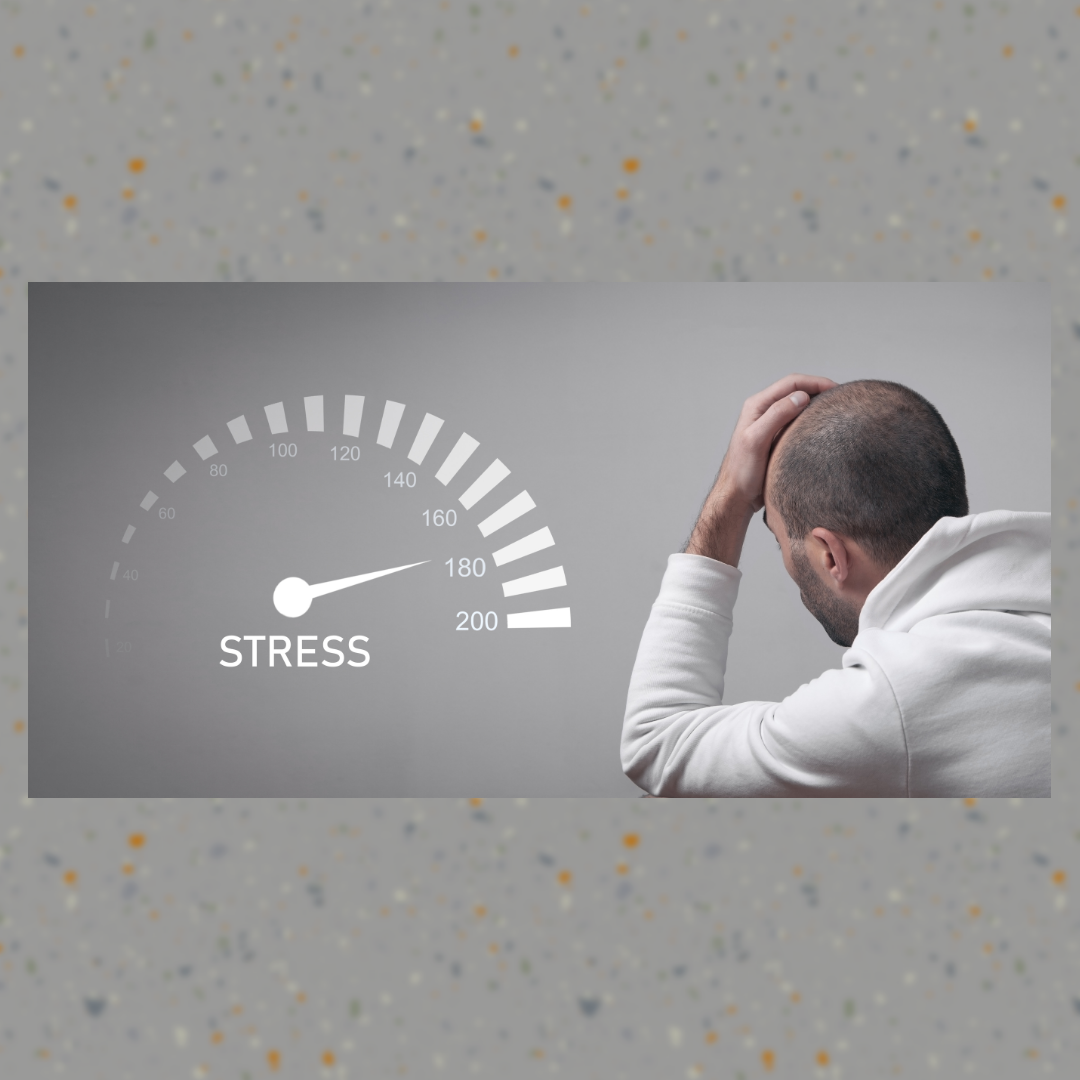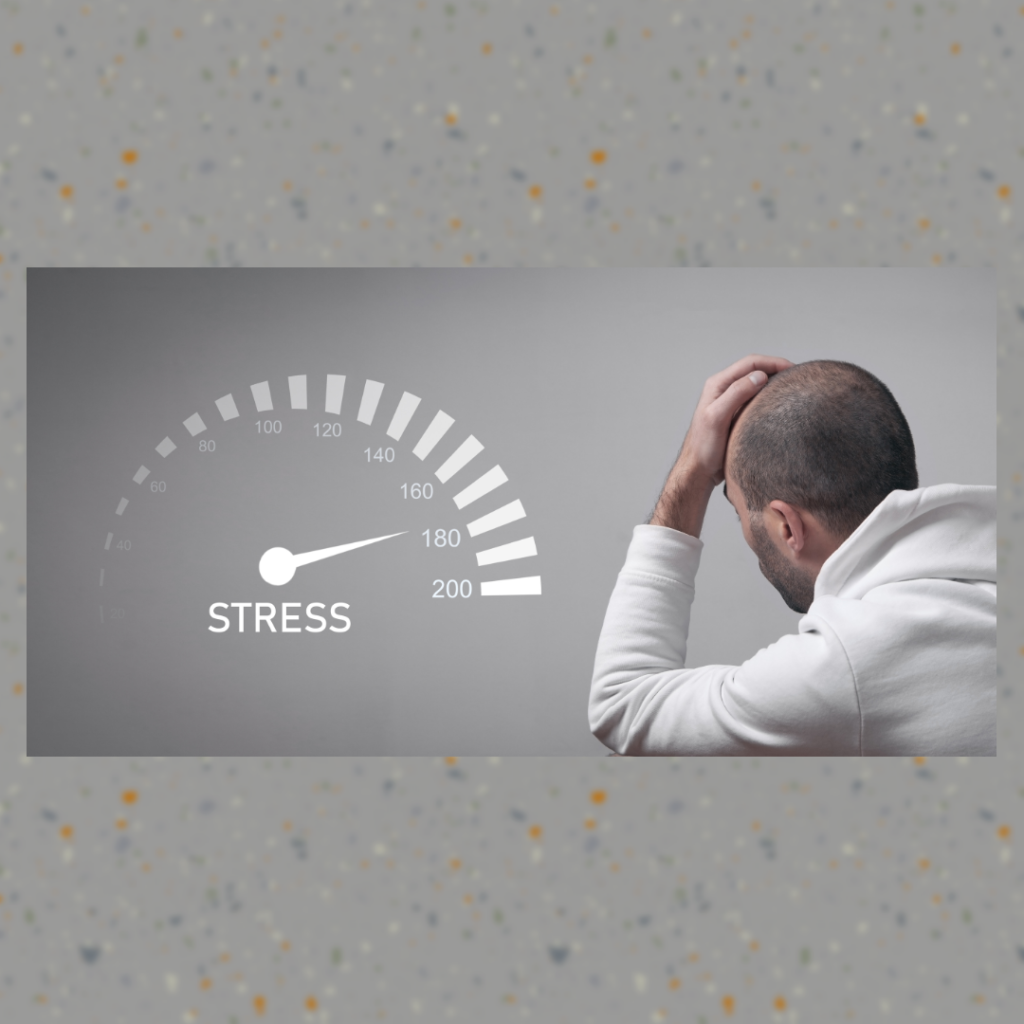
The Silent Killer: Understanding the Impact of Stress on Mental Health

Stress has become a major part of modern life, that affects individuals across different age groups and backgrounds. While stress can sometimes be a motivating force (as observed in the case of Eustress), prolonged exposure to stressors can have detrimental effects on both our physical and mental health. Recently, data from research conducted by the American Psychology Association revealed that the number of cases of mental health challenges caused by stress is increasing globally and in a report by the agency Stress was called “A National Mental Health Crisis.”
In this article, we will dig into the potential consequences of stress on mental well-being, the signs and symptoms of stress, and finally provide coping mechanisms to equip ourselves with better ways to manage stress.
What is stress and how does it affect mental health?
Stress and mental health might sound unrelated, but research shows that both concepts can be interconnected, with research as early as 2005 pointing out that stress can significantly impact one’s mental well-being. Typically, stress can be defined as a response to a perceived threat or challenge, which triggers a “fight or flight” response. Stress can arise from various sources, including work pressures, health problems, financial constraints, relationship difficulties, changing situations like childbirth, planning a wedding etc. It is important to note that stress is not caused by negative events alone, good and joyful events can cause stress.
Prolonged periods of stress can cause significant harm to both physical and emotional health, leading to anxiety, depression, and other mental health issues. The link between stress and mental health stems from the impact of stress on the brain. Chronic stress can result in changes in the brain’s structure and function, leading to reduced brain volume and neuronal activity. The impact of stress on the brain is mainly due to the excess secretion of stress hormones such as cortisol and adrenaline. These hormones can negatively affect memory, attention, decision-making, and emotional regulation, leading to anxiety, depression, and other mental health issues. Understanding the causes and effects of stress is crucial in addressing mental health issues. By recognizing the sources of stress in our lives and learning ways to manage our stress levels, we can prevent stress from negatively impacting our mental health.
Signs and symptoms of stress
Stress can present itself in different ways. Examples of physical symptoms are
· Headaches
· Fatigue and lack of energy
· Stomach aches
· Increased blood pressure
· Increased heart rate etc.,
Examples of psychological symptoms of stress are;
· Anxiety
· Difficulty concentrating
· Mood swings
· Reduced or Increased appetite
· Feelings of sadness
· Lose of interest in previously pleasurable activities
It is important to note that every individual experiences stress differently, so the symptoms of how one person’s body reacts to stress might differ from another person’s.
The impact of stress on different mental health issues
Excessive stress can significantly impact one’s mental well-being. Research conducted by mental health and medical practitioners showed a strong correlation between chronic stress and the development of mood disorders such as anxiety and depression. Interestingly, more evidence also points to the adverse effects of stress on sleep. According to the World Health Organization, sleep provides human being an opportunity to rest and rejuvenate their bodies. However, chronic stress results in difficulties falling asleep or staying asleep. Sleep deprivation can further increase stress levels, creating a vicious cycle of increasing stress levels.
Long-term stress can also exacerbate pre-existing mental health conditions, thereby increasing the risk of relapse or the severity of the symptoms. With several renowned sources pointing to the detrimental of stress on not just the human body but our mental health, it is critical to proffer ways to manage stressors in our lives.
Coping mechanisms for stress management
Stress is an inevitable part of our life, and over the years different techniques have been designed to help individuals manage stress.
1. Mindfulness and meditation: this technique involves focusing one’s attention on the present moment without our thoughts wandering to other events. Mindfulness can be practised in a quiet room by focusing one’s thoughts on a specific peace-evoking event Such as a happy day. Practising meditation for even ten minutes a day can lead to significant changes in how people manage stress.
2. Exercise and physical activity: Physical activities are known to increase endorphins, which are natural mood boosters and reduce the levels of stress hormones. Individuals struggling with stress can engage in physical activities like walking down a street or park, running, cycling or dancing.
3. Social support: this technique creates an excellent outlet for individuals to vent their emotions in the presence of family and friends can aid in reducing stress levels. This technique is not only for venting, individuals can ask for help from their social support networks to enable them to manage stressors better. For example, the Omogwuo practice in Nigeria which involves a new mother inviting her parents to help her take care of her baby within the first three months of delivery is an excellent use of social support
4. Cognitive Behavioural Therapy (CBT): this technique involves the service of a mental health expert. The expert guides an individual through talk therapy that focuses on changing negative thought patterns and behaviours. CBT can assist individuals in identifying and changing the thoughts or behaviours that contribute to their stress thereby creating better ways to manage stressors.
Conclusion
Remember, stress and mental health issues are closely linked, and the negative impacts can be severe. It is crucial to understand the signs of stress and ways to cope with it. Seeking support and professional help is vital in managing the effects of stress on our mental health. Don’t ignore the warning signs or feel like you’re alone in this. Let’s break the stigma around mental health issues and get the necessary help and support to maintain a healthy mind and body. Together, we can create a safe and supportive environment.
References:
1. American Psychological Association (2020). Stress in America 2020. [online] Apa.org. Available at: https://www.apa.org/news/press/releases/stress/2020/report-october [Accessed Jun. 2023].
2. Li, Z.-S. and Hasson, F. (2020). Resilience, stress, and psychological well-being in nursing students: A systematic review. Nurse Education Today, 90(1), p.104440. doi:https://doi.org/10.1016/j.nedt.2020.104440.
3. Lopes, A.R. and Nihei, O.K. (2021). Depression, anxiety and stress symptoms in Brazilian university students during the COVID-19 pandemic: Predictors and association with life satisfaction, psychological well-being and coping strategies. PLOS ONE, 16(10), p.e0258493. doi https://doi.org/10.1371/journal.pone.0258493.
4. Schneiderman, N., Ironson, G. and Siegel, S.D. (2005). Stress and health: Psychological, behavioural, and biological determinants. Annual Review of Clinical Psychology, [online] 1(1), pp.607–628. doi:https://doi.org/10.1146/annurev.clinpsy.1.102803.144141.
5. McEwen, B. S., & Sapolsky, R. M. (1995). Stress and cognitive function. Current Opinion in Neurobiology, 5(2), 205-216.

